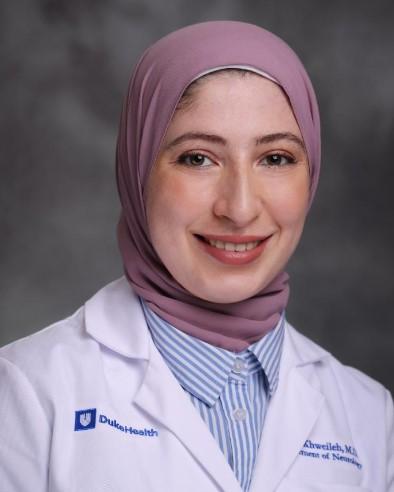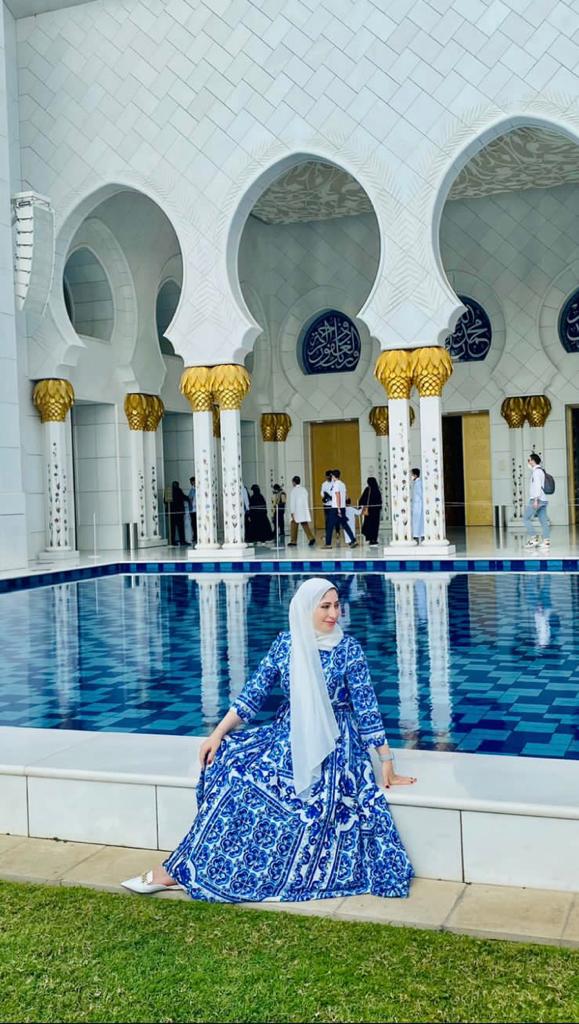
As a high school student, Mays Khweileh, MD, was fascinated by the capacity of the human brain, as well as the nature of consciousness. Now, as one of our clinical neurophysiology, she realizes the mysteries of the brain are greater than she had ever thought. In her “Fellow Spotlight” interview, Khweileh talks to us about her work integrating a patient’s history and EEG findings to best guide patient management. She also shares her hopes for a future involving a clinical neurology practice combined with volunteer work and how the health system of the United States compares to her native Jordan.
What are your current responsibilities as a clinical neurophysiology fellow? What does a typical day look like for you?
I usually spend most of my working time interpreting EEG studies. Our typical day starts at 7 a.m., when we start reviewing patient updates overnight. It becomes more interesting once we share our interpretation with attendings, as having these discussions is essential for our learning.
How and when did you get interested in neurology?
Since high school, I have been fascinated by the study of the brain and the power of imagination. Now that I’m a fellow, I know that I didn't even have a clue! Since many mysteries in brain physiology are still left to the imagination there are many opportunities for creativity and makes it extremely interesting.
What plans do you have for after you complete your fellowship? If you could have any job in the world, what would it be?
I would probably continue my clinical neurology practice, but I would like to find a space in my life for volunteering worldwide.
What’s one experience from your time as a fellow so far that’s been especially memorable or useful for you?
I learned from one of my patients that even the same brain can perform or react differently to any stimulus relying on the time frame you are testing, so no theory can be taken for granted in future encounters based on this previous data.
You completed your medical training and residency in Jordan. How does Jordan’s health and medical systems compare to that of the United States?
In terms of healthcare infrastructure and resources, the United States generally has more specialized medical centers and healthcare providers with expertise in neurology compared to Jordan. However, Jordan makes tremendous efforts to provide relatively more accessible healthcare to all Jordanians given its limited resources.
What do you enjoy most about your work?
I enjoy the friendly work environment and the availability of advanced and up-to-date knowledge and techniques that help trainees keep track of the speed of neurology field development.
What’s the hardest part of your job?
For me, the hardest part is the ability to comprehend the data that you have on the patient's charts including history, examination, and imaging into the EEG findings. This work is necessary to get a better understanding of the story behind what we can see in the EEG, which in turn allows us to use those findings into an interpretation that might help guide management.

Khweileh shared this photo of herself during a recent visit to Dubai.